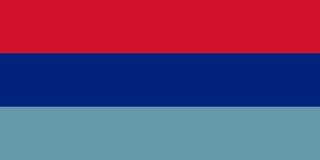About the Nigerian Armed Forces
Nigerian Armed Forces
Flag of the Nigeria Military
Since its creation the Nigerian military has fought in a civil war – the conflict with Biafra in 1967–70 – and sent peacekeeping forces abroad both with the United Nations and as the backbone of the Economic Community of West African States (ECOWAS) Cease-fire Monitoring Group (ECOMOG) in Liberia and Sierra Leone. It has also seized power twice at home (1966 & 1983).
In the aftermath of the civil war, the much expanded size of the military, around 250,000 in 1977, consumed a large part of Nigeria’s resources under military rule for little productive return. The great expansion of the military during the civil war further entrenched the existing military hold on Nigerian society carried over from the first military regime. In doing so, it played an appreciable part in reinforcing the military’s nearly first-among-equals status within Nigerian society, and the linked decline in military effectiveness. Olusegun Obasanjo, who by 1999 had become President, bemoaned the fact in his inaugural address that year: ‘... Professionalism has been lost... my heart bleeds to see the degradation in the proficiency of the military.`
Training establishments in Nigeria include the prestigious officer entry Nigerian Defence Academy at Kaduna, the Armed Forces Command and Staff College, Jaji, and the National War College at Abuja.
The U.S. commercial military contractor, Military Professional Resources Inc. has been involved from around 1999–2000 in advising on civil-military relations for the armed forces.

Here’s a comprehensive list of military high schools in Nigeria https://militarywifi.com/top-military-high-schools-in-nigeria/
ReplyDelete